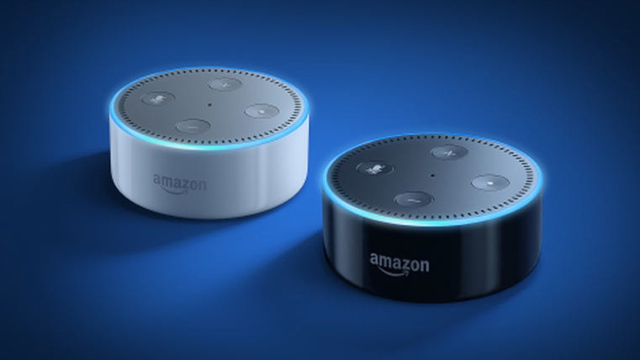Amazon Lowers Echo Prices to Gain Foothold in Smart Home
December 20, 2017
It’s a great time to buy a smart speaker, due to Amazon lowering prices of its six Echo devices on Black Friday. Over the Thanksgiving Day weekend, the entry-level Dot — whose price plummeted from $50 to $30 — became the No. 1 seller on Amazon’s website. Amazon, Apple and Google share the same strategy for smart speakers and their virtual assistants: as an entry point to the connected home. But because home speakers’ functionality is limited, consumers don’t see them as necessary and aren’t willing to pay a high price.
The Wall Street Journal reports that, “Amazon has accelerated price declines in the home-speaker market by selling at slim margins because it wants to hook users into monthly content-subscriptions, its $99 annual Prime membership and shopping on its website.” At the same time, limited and imperfect performance of the devices mean that smart speakers, “have a long way to go before consumers perceive them as necessary, or as valuable as other major consumer electronics like smartphones, TVs and laptops.”
Analysts say that Amazon dominates with 75 percent of the smart speaker market, “mainly because it arrived first with the original Echo, which sold for $180” in June 2015. The new Echo speaker now sells for $100.
In reaction to Amazon’s new, lower prices, Alphabet “reduced prices on its Google Home smart speaker nearly 40 percent to $79 for a limited time and introduced a lower-priced option, the currently $29 Home Mini.” Apple, whose HomePod is priced at $349, delayed its launch until after the holidays.
“Amazon is all about driving [speaker prices] to the bottom because for them it’s an entry point for e-commerce,” said Constellation Research analyst Holger Mueller. Consumer Intelligence Research Partners reports that average smart speaker prices have dropped more than 50 percent in less than a year, whereas smartphone prices fell 32 percent over a decade.
Smartphone leaders Apple and Samsung, however, keep pushing prices up, mainly because “smartphones were designed to be status symbols used in public,” whereas “Amazon made the speaker a utility to be used at home,” said Mueller. Amazon also debuted “a broader line of devices, with price points for every consumer.”
According to Consumer Intelligence Research Partners, the entry-level Dot, released in October 2016, “accounts for more than half of unit sales for the Echo since Amazon introduced its first smart-speaker.” Google cut the price for its Dot-competitor, Home Mini, 41 percent to $29, but it also “added the higher-end Google Home Max, a larger $399 screenless speaker, with a sound system capable of competing with Apple’s HomePod.”


No Comments Yet
You can be the first to comment!
Sorry, comments for this entry are closed at this time.